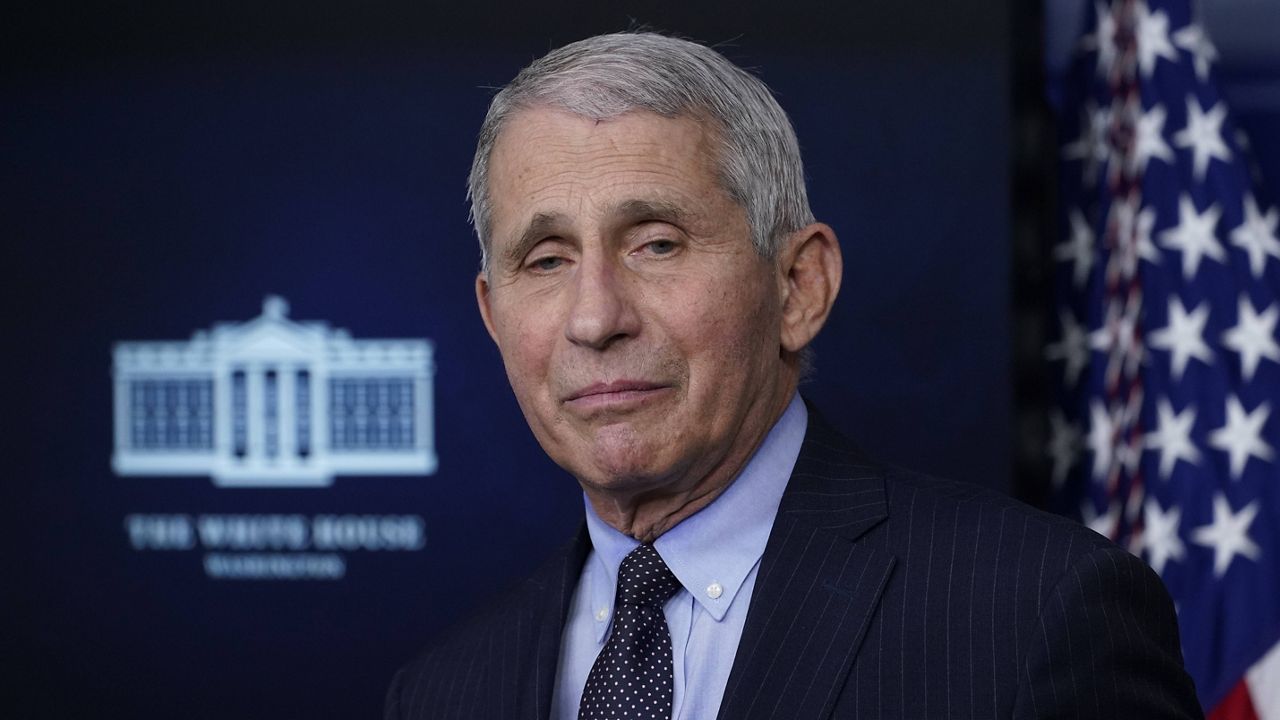Dr. Anthony Fauci, the federal government’s top infectious disease expert, said Friday morning that former President Donald Trump’s failure to be honest with the American people about the coronavirus pandemic “very likely did” lead to more deaths.
What You Need To Know
- Dr. Anthony Fauci said Friday morning that former President Donald Trump’s failure to be honest with the American people about the coronavirus pandemic “very likely did” led to more deaths
- Fauci made the damning statement in response to a question from CNN’s John Berman
- The federal government’s top infectious disease expert said Trump's statements that were "not based on any science at all" were "not helpful"
- Fauci applauded President Joe Biden for listing restoring the trust with the American people as his top goal in his coronavirus national strategy
Fauci made the damning statement in response to a question from CNN’s John Berman, who asked if Trump's lack of candor and facts cost lives last year.
“I don’t want that … to be a sound bite, but I think if you just look at that, you could just see that when you’re starting to go down paths that are not based on any science at all ... that is not helpful at all, particularly when you’re in the situation of almost being in a crisis with the number of cases and hospitalizations and deaths that we have,” Fauci said. “When you start talking about things that make no sense medically and no sense scientifically, that clearly is not helpful.”
Fauci, the longtime director of the National Institute of Allergy and Infectious Diseases, repeatedly butted heads with Trump, with the doctor sometimes publicly contradicting the then-president. Trump often attacked Fauci on Twitter and campaign rallies.
Trump made many false statements related to the pandemic. Among them, he famously admitted to journalist Bob Woodward that he intentionally downplayed the seriousness of the coronavirus publicly to avoid stirring a panic. He repeatedly claimed the pandemic was nearing an end, even as numbers were rising. He also falsely claimed the virus would disappear with warmer weather, that hydroxychloroquine was a safe and effective treatment, and that the U.S. death toll was inflated because doctors and hospitals were being paid more to list COVID-19 as the cause of death.
As of Friday morning, more than 24.6 million Americans have been infected by COVID-19, with more than 410,000 dying.
In announcing his national strategy for tackling the pandemic this week, newly inaugurated President Joe Biden listed restoring the trust with the American people as his top goal.
Fauci, now Biden’s top coronavirus adviser, applauded the president for that.
“There’s no secret we’ve had a lot of divisiveness,” Fauci told CNN. “We’ve had facts that were very, very clear that were questioned. People were not trusting what health officials were saying. There was great divisiveness. Masking became a political issue. So what the president [Biden] was saying right front the get-go, let’s reset this, let’s everybody get on the same page, trust each other, let the science speak. And he said that multiple times, not only before the cameras; he said it to us in the meeting that we had in the White House yesterday.”
Fauci added that he always believed the Trump administration’s strategy of allowing states to largely decide how they’d respond to the virus was a mistake.
“You don’t want the federal government to do everything, and you don’t want the states to do everything,” he said. “But what we saw a lot of was saying, ‘OK, states, do what you want to do.’ And states were doing things that clearly were not the right direction, and that’s unfortunate.
“So the best thing to do is to have a plan, have the federal government interact with the states in a synergistic, cooperative, collaborative way, helping them with resources and helping them with a plan, at the same time respecting the individual issues that any individual state might have. That’s the way to go, not ‘You’re on your own, goodbye, see you around later.’ That doesn’t work. And a lot of states did not like that. They want to have the capability of making their own decisions, but they also need resources and they need help.”



